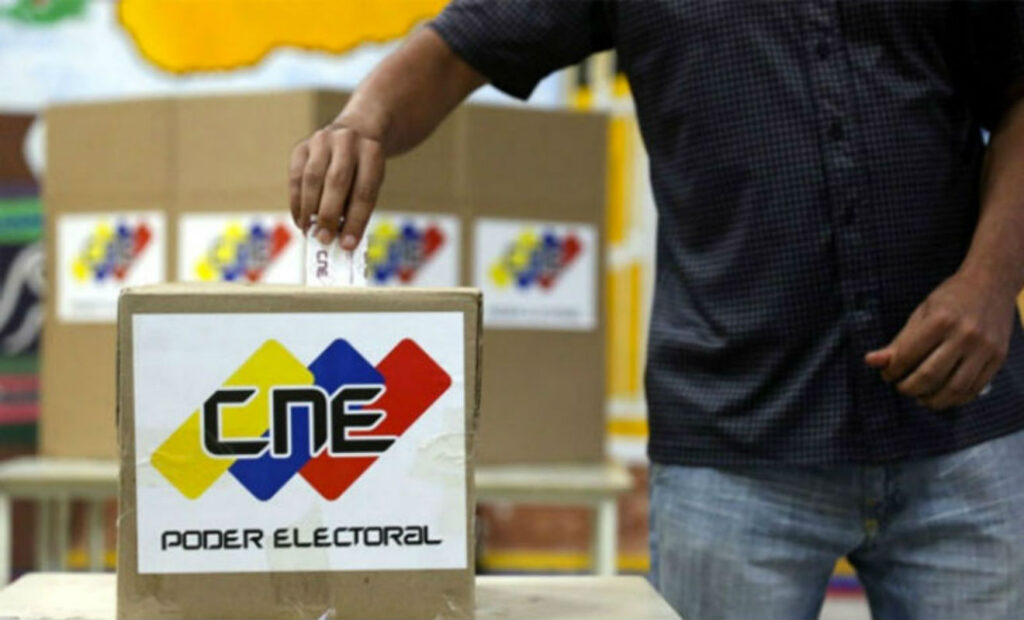Introduction
Venezuela goes to the polls again on 28 July 2024 for the presidential election, held every six years as prescribed in Venezuela’s constitution.
In Venezuela, elections are organised by the National Electoral Council (CNE), which has constitutional status. It is composed of five people: three are nominated by civil society, one by the faculties of legal and political sciences of national universities, and one by the Citizens’ Power. In compliance with its constitutional duties and legal requirements, the CNE has set both the election date and the electoral schedule that it will follow.
The President of the CNE, Elvis Amoroso, informed Venezuela’s citizens that these decisions were made taking into account the Caracas Agreement signed last February 28 by different sectors of the political, social, religious and economic life of the country (several of them in opposition to the Bolivarian Government). This is the result of the permanent dialogue that President Maduro has been promoting and encouraging for many years.
The electoral process in Venezuela
This will be the 31st electoral process in Bolivarian Venezuela and, as always, it will have all the guarantees that have typified all elections since 1999.
The electoral system is very sophisticated and efficient: the Carter Center judges it to be the most secure in the world. After registering their electronic vote, the voter receives a printed proof that he or she deposits in the ballot box, and at the end of the day the electronic and printed ballots must coincide. Then each participating party has an electronic key and results are sent only when all participants validate them at the same time. At all levels, the parties must validate the results; then, at random, 54% of the votes are verified manually.
In Bolivarian Venezuela, each election also has at least 14 audits, before, during and after the electoral process; audits that include the participation of all political parties participating in the election, as well as election technicians, computerised electoral systems technicians, and representatives of all institutions and/or national and international organisations invited to accompany the election (see details of the audits of a typical election here: http://www.cne.gob.ve/web/sistema_electoral/tecnologia_electoral_auditorias.php
Who are the candidates?
- President Nicolás Maduro is running for re-election as the candidate of the United Socialist Party of Venezuela (PSUV) and the broader Great Patriotic Pole coalition. An opinion poll in March showed the PSUV on 35% compared to the opposition’s 9%.
His campaign programme, known as the “Seven Transformations,” proposes major new initiatives in economic modernisation, asserting national sovereignty, safety and security, ensuring social rights, political participation, the environment, and geopolitics. These aim to counteract the destructive effects of US sanctions and to stimulate greater economic activity, while sustaining the socialist direction of Venezuela’s development model.
Opposition candidates are:
- Javier Bertucci (a candidate in 2018 who polled 10.8% of the valid votes, coming third)
- Benjamin Rausseo (an entrepreneur and comedian, registering as an independent)
- Claudio Fermín (for the Soluciones party)
- Antonio Ecarri (standing for the Alianza del Lápiz movement, with the support of the Avanzada Progresista and Cambiemos parties).
- Enrique Márquez (for the Centrados political party).
- José Brito (Venezuela First).
- Luis Eduardo Martínez (Democratic Action)
- Daniel Ceballos (AREPA).
- Edmundo González Urritia – a former diplomat who was sacked by Chávez in 2002 and has been absent from Venezuelan politics for a long time.
Juan Carlos Alvarado (COPEI) and Luis Ratti (an independent candidate for the Popular Democratic Right Party) have withdrawn their candidatures.
Maria Corina Machado is not a candidate after losing her appeal to the Supreme Court regarding her existing disqualification from holding public office (for, amongst other offences, her support for regime change plots). Instead, the far-right opposition coalition Unitary Platform (PUD) is supporting Edmundo González Urritia who was registered after the CNE extended the candidate registration deadline by 12 hours.
While at first his candidacy was labelled as temporary until the far-right opposition groups had decided who to support as their candidate, the PUD finally decided on April 19, the day before the CNE deadline to change candidates whose names will appear in the electoral ballot, to unanimously support González.
Which organisations are sending international observers?
International observer teams from multilateral organisations such as the Council of Latin American Electoral Experts (CEELA), the Caribbean Community (CARICOM) and African Union, which customarily attend Venezuela’s elections, will again do so.
But for these elections, the EU and the Carter Center have also accepted the invitation to send a team of observers. The Carter Center has signed a memorandum of understanding to guarantee the impartiality and objectivity of its election observation mission.
Given the extent of external observation of these elections, it will be important for all parties to recognise the results once they are officially announced by the CNE. President Maduro has already made a commitment to do so on behalf of the PSUV.
The critical factor here is whether the right-wing opposition loses and objects to the results, as has happened previously, thereby helping to legitimate any intensification of sanctions by the US. The US has already reapplied sanctions, only lifted in October 2023, on Venezuela’s mining, gas and oil industries for alleged infringements of commitments agreed last year in Barbados between the government and the right-wing opposition.
Follow the latest at www.venezuelasolidarity.co.uk , www.facebook.com/VenSolidarity and www.twitter.com/VenSolidarity

